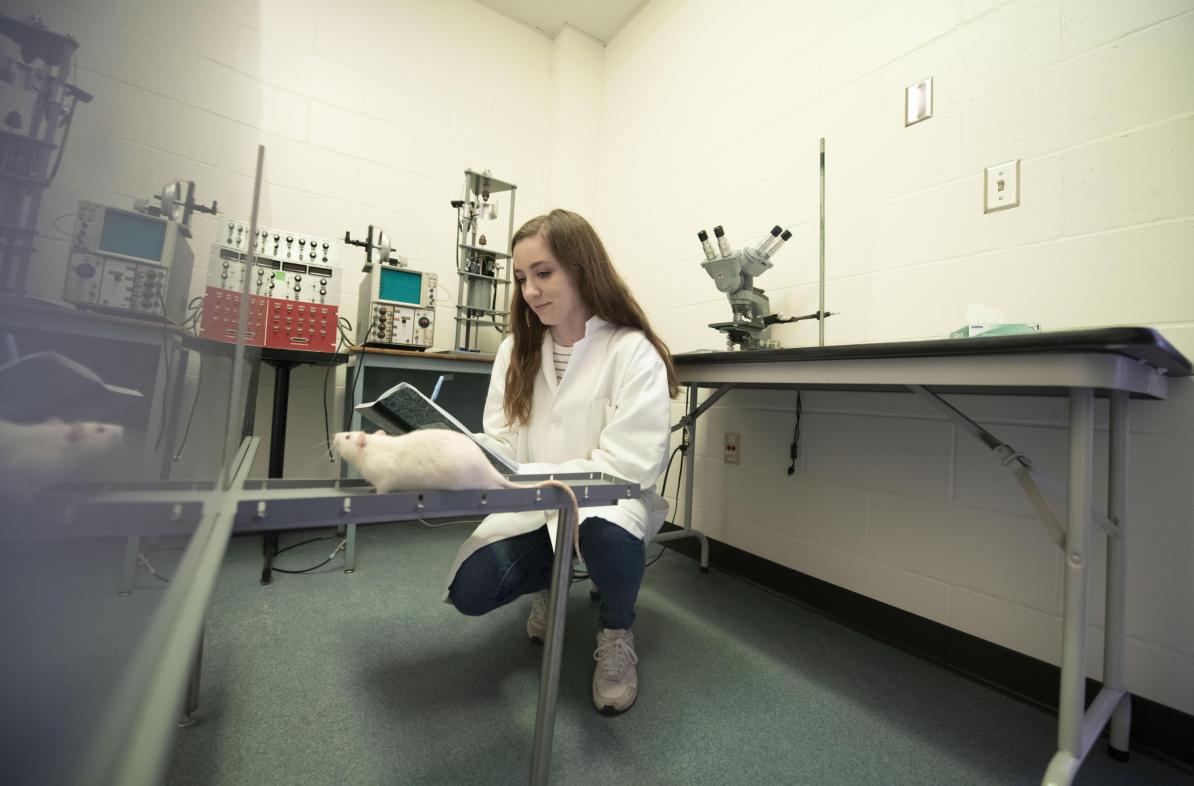ID

Blugold biochemistry/molecular biology major set for medical school success
Story Categories
Authored on
Blugold biochemistry/molecular biology major set for medical school success
Published on:
Intro text
One Blugold biochemistry/molecular biology major is well on her way to achieving her goal of becoming a physician, thanks to a University of Wisconsin-Eau Claire and Mayo Clinic Health System collaboration that is giving her real-world experiences and opportunities on campus and in health care settings, preparing her for success in medical school and beyond.
Sections
For the media
For the media
Image download




